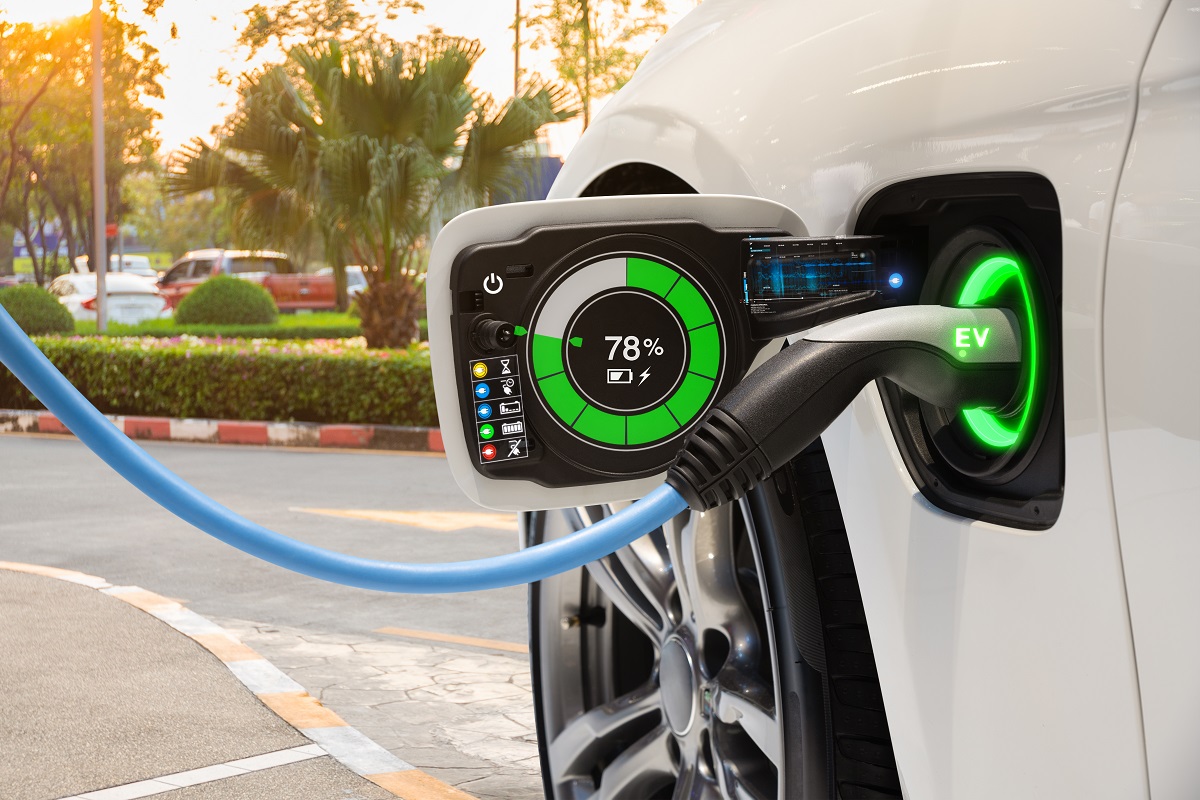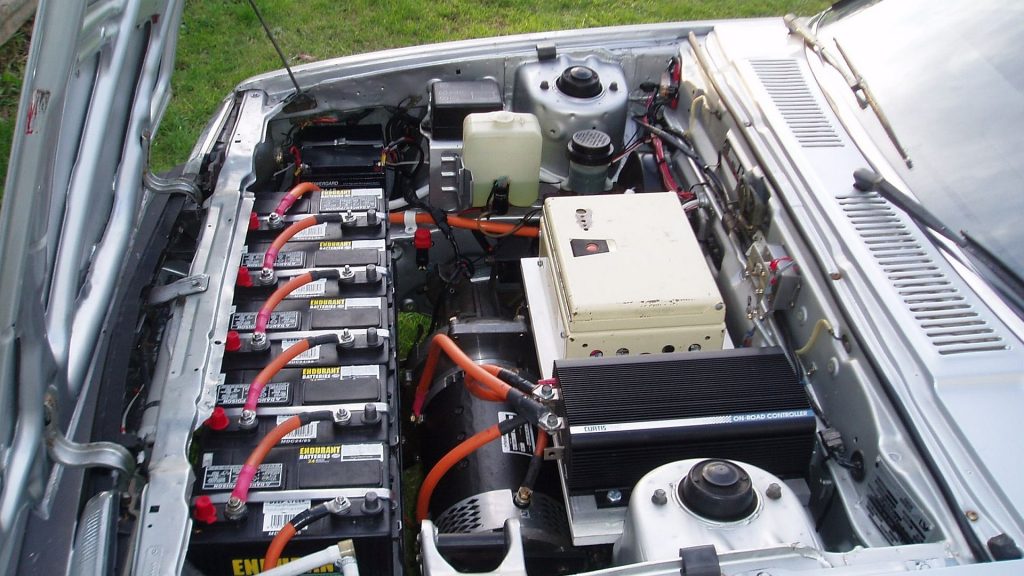How Much Does It Cost To Convert A Vehicle To Electric In 2022
By Sebastian Orellana
Updated Feb 18, 2024

In an age where the world tries to reduce greenhouse gas emissions to save the climate, electric vehicle conversions have seen a gradual rise. It is also no secret that the U.S. Environmental Protection Agency (EPA) recently pronounced stricter vehicle emissions regulations, limiting the use of diesel-powered vehicles in specific locations.
Table of Contents
With these pressing environmental crusades and stipulations surrounding diesel-fuel vehicles, an EV conversion is the most feasible solution for automobiles to thrive in the future.
The idea of electronic vehicle (EV) conversion appears to be relatively new in the public consciousness. This is why there’s been a lot of skepticism regarding its reliability in recent years. Some people have questions about it. Others also wonder whether it’s road legal in specific geographic locations.
In this article, you will learn how EV conversion works, how much an EV conversion costs, and the process involved in converting an EV.
Why Convert To Electric Vehicles?
Electric cars are automatic vehicles that are powered through electric motors, using rechargeable lithium-ion batteries like your smartphone or laptop. Since electric cars are rechargeable, they are plugged into external electric power sources, just like our everyday devices.
A champion in fuel efficiency, EV conversion has become a substantial step in sustainable transportation. Electric vehicles are considered a cleaner alternative than their conventional counterparts, as they emit a lower carbon footprint.
Not only does it benefit the environment, but EV conversion is also a proven solution to reduce operating expenses for vehicle owners. This is especially true in the United States, as diesel-fuel cars cost 10 cents per mile, whereas electric cars only cost approximately 3 cents per mile. Imagine if you start using an electric car today – in ten years, you will save an approximate total of $6,320 over its diesel-powered counterpart.
Plus, buying a brand new electric car will cost you big bucks. So, converting your regular car is a much more practical option that also allows you to retain its sentimental value.
However, it’s important to note that while you will save a lot in the succeeding years compared to owning a diesel-powered vehicle, electric vehicle (EV) conversion requires significant upfront capital.
What Is Electric Vehicle Conversion?

An electric vehicle conversion is an innovative process of replacing a car's combustion engine and drivetrain components with an electric motor and large bank of batteries. As a result, it creates an all-encompassing electric vehicle, minus the power of fuel emissions.
As promising as it sounds, understanding the process and objective of electronic conversion is imperative before starting an EV project. With this, you have a clearer idea of what results to expect.
What Is The Electric Vehicle Conversion Process?
Converting your diesel-fuel vehicle into electric is a complex process that requires expert knowledge and hands-on expertise in mechanical, electrical, and automotive engineering. Here is a simplified breakdown of what you can expect during an EV conversion process.
Identifying The Right Vehicle
The conversion process starts with choosing the right car to convert. The prospective car has to be powered by petrol or diesel to be qualified.
Extracting And Substituting The Drivetrain
Here’s where the actual process of conversion starts – think of this as an operation where the organs are extracted and replaced with new ones. In the case of EV conversion, the fuel tank, the engine, the gearbox, the starter, as well as other intricate related hardware are like the organs that are subsequently extracted.
Once unloaded, the removed parts are replaced with new drivetrain components, such as the electric motor and a set of batteries. This essentially gives your car a new life!
Choosing The Appropriate Power Type/Source
The DC unit is the most common option for replacement, but an AC system can also be a viable option. In terms of motor sizes, this will largely depend on your car's weight and size, but preference for performance can also be a factor.
Choosing The Appropriate Battery
The battery pack, of course, will drive the motor. Lead-acid batteries are the standard option for installation, though they tend to have a small operating range on a charge. Lithium cells are also an option with a much more impressive range, not to mention they are smaller and lighter.
The number of batteries needed, however, depends on the size of your vehicle. Bigger batteries, by default, occupy bigger spaces to fit.
Configuring Power And Charging System
To control the energy flow between the battery and the motor, wirings, and other intricate components, a reliable charging system is needed to power up the batteries through an electric circuit. To get the most out of the EV conversion, you need to operate your car's air conditioner, heater, and power steering systems by adding additional hardware. You also have to take note that this may come with an extra cost for installation.
Assessing
Once your car has been converted, the automotive engineer or specialist will then assess your vehicle's performance and safety before giving the go signal for your wheels to hit the road.
What Affects Electric Vehicle (EV) Conversion Price?
A brand new electric car can cost you around $32,900 to $50,990 as the standard market price. While a brand new car can be an excellent deal, converting your current car can save money significantly, as the standard conversion cost is only around $15,000 to $20,000. However, this depends on the type of car you own and your preferred range.
Truth be told, there is no definitive and standard cost for an EV conversion, as every car and preference are unique. Apart from the labor, other factors affect the conversion cost, such as the price of batteries, body design, and technological capacities. To help you calculate the estimated total expenses, here are the factors that affect conversion costs:
Car Design
Your car’s original design and aesthetic preferences are the first factors that affect the conversion cost. Elaborate design components will impact your car’s weight – heavier vehicles require more electrical energy to get them to speed. This simply means that you need bigger batteries to replenish extra electric power.
The design intricacy and age of your car will also have an impact on the cost calculation. Most older cars have a simpler design, which means lower installation expenses.
Batteries
The batteries are the primary component that differentiates electric cars from diesel-fuel vehicles. This is also the most expensive part of EV conversion. The cost of batteries depends on two variables: the power required and your range preference. The higher the range, the more power it requires, and, the more expensive it gets.
Charger
Knowing the voltage of your battery is crucial when choosing a charger for an EV conversion. You need to identify the maximum and minimum voltage of your battery pack, and your charger’s voltage range needs to correspond with the battery capacity as well. Chargers that can support a higher voltage range will naturally cost you a considerable amount of money.
Electric Motor Or Engine
Your electric motor depends on the power, voltage, and manufacturer of your battery pack. If the engine has a power output of 14kW and an operating voltage of 100V, it will cost you around $800 to $1,000. If the motor has a power output of 200kW and higher, the cost can go up to $3,200 or more.
Controller
If you purchase an electric motor, chances are controllers can be bought as a motor combo. Not only can you benefit from discounts, but motor and controller combos are also typically configured to one another. This saves you from additional expenses and guesswork. Multiple brands such as Curtis sell motor-controller combinations with user-friendly functionalities in case you need to navigate settings.
While the price of controllers varies by motor and supplier, the cheapest one will cost you around $1,000, and the pricey options can go as high as $10,000. We recommend you consult your EV automotive engineer first for practical alternatives.
EV Conversion Cost Overview
So, how much does an EV conversion cost? Below is a breakdown of how different factors can affect your total price tag. Please note that overall costs still vary as you still need to pay for any miscellaneous costs and the costs of your preferred additions.
| Components | Minimum Cost | Maximum Cost |
| Car Design + configurations | Depends on the car | Depends on the car |
| Batteries | $16,000 | $46,000 |
| Charger | $600 | $6,000 |
| Electric motor | $800+ | $3,200+ |
| Controller | $1,000 | $5,000 |
| Miscellaneous expenses | $2,000 | $5,000 |
| Total Cost | $20,400 (excluding car design configurations) | $65,200 (excluding car design configurations) |
Frequently Asked Questions About EV Conversion
Here is a quick summary table of the most common questions people ask about electric vehicle (EV) conversion:
What vehicles are ideal for EV conversion and why?
The ideal vehicles for an EV conversion are cars with enough space for batteries and heavier drivetrain components, so you can enjoy a higher range and more options.
How long does it take to convert my car?
Since the labor for EV conversion has tons of moving parts and configurations, the approximate timeline to fully convert your regular car to electric is 3 to 6 months
Is it possible to convert any car into electric?
Yes, as long as it is still in great condition.
Once EV conversion is done, is it possible to revert my electric car back to its original diesel-powered form?
Yes, but it defeats the purpose of conversion and would cost you more money.
Will it be legal to drive an electric conversion car?
Yes, as long as it is registered and authorized by the U.S. Department of Motor Vehicles and Alternative Fuels on Data Center. Your automotive specialist can provide you with a definitive process and tips on what you need to do in the first 30 days of your newly converted vehicle.
Is it recommended to do the EV conversion yourself?
It is not recommended, as some specific reconfiguration requires expertise and authorization. This also prevents you from experiencing issues with your electric car in the future.
Final Thoughts
An electric vehicle (EV) conversion project has tons of moving parts that require time and budget to succeed. If you're looking to convert your vehicle into a high-performing electric car, expect to spend more on batteries and other drivetrain components.
While the process can be confusing, don't forget to consult with your automotive specialist for a clear timeline of completion. If you have any questions or want to know how far an electric vehicle can go, check out our article here.
Also Read:
How Long Until An Electric Car Pays For Itself
How Much Does It Cost To Replace A Battery In An Electric Car
